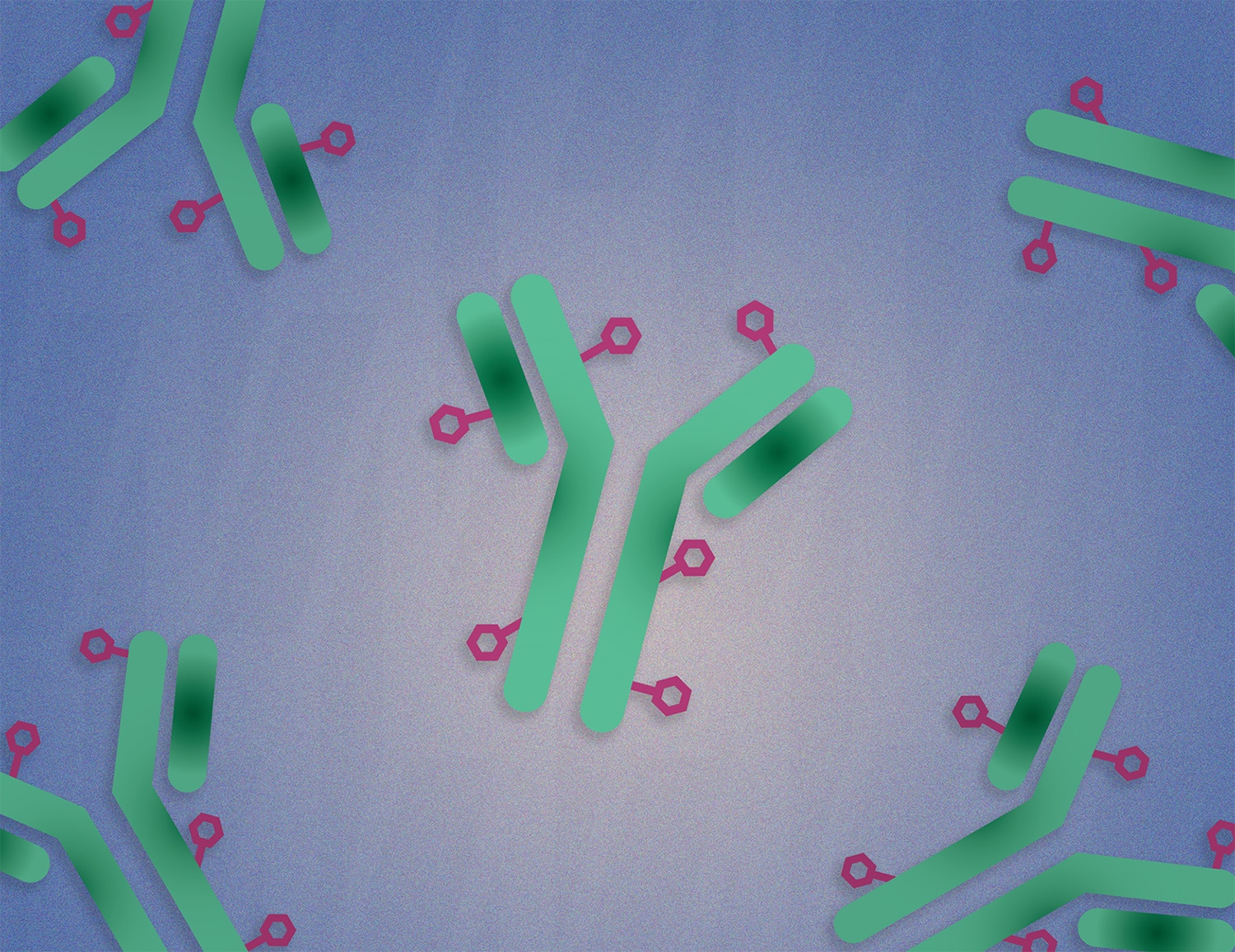Treating Triple-Negative Breast Cancer
On April 22, the Food and Drug Administration approved Trodelvy (sacituzumab govitecan-hziy) as a treatment for people with metastatic, triple-negative breast cancer who have received two prior treatments. At the ESMO Virtual Congress 2020, investigators presented results from a phase III trial of the drug. Patients who were randomly assigned to receive standard care, consisting of chemotherapy, lived a median 6.7 months, while those who received Trodelvy lived 12.1 months. Trodelvy is an antibody-drug conjugate, consisting of a potent chemotherapy drug attached to an antibody that binds to cancer cells. Patients who received Trodelvy were more likely to experience a variety of side effects than those who received standard chemotherapy.
Targeting KRAS in Lung Cancer
Researchers presented new data at the ESMO Virtual Congress 2020 on an investigational drug targeting cancers with mutations in the KRAS gene. The findings were also published Sept. 24 in the New England Journal of Medicine. The drug, previously known as AMG 510 and now called sotorasib, was tested in 59 people with advanced non-small cell lung cancer (NSCLC) with a G12C mutation in the KRAS gene. The patients went a median 6.3 months without cancer progression, and 32.2% of patients had tumors that shrank in response to the treatment. The patients had generally received multiple prior treatments. The G12C KRAS mutation occurs in 13% of NSCLCs. “Sotorasib was well tolerated in this study, and it is the first KRAS inhibitor that has shown activity in any cancer. Although the results are early, it is promising—especially in non-small cell lung cancer,” said investigator David S. Hong of the University of Texas MD Anderson Cancer Center in Houston in a press release.
CDK4/6 Inhibitors for Early-Stage Breast Cancer?
Three CDK4/6 inhibitors—drugs that target proteins involved in the cell cycle—are currently approved for treatment of hormone receptor-positive, metastatic breast cancer. Two trials whose results were presented at the ESMO Virtual Congress 2020 asked whether these drugs could also be used as a post-surgery treatment for early-stage breast cancer. In one study, published Sept. 20 in the Journal of Clinical Oncology, researchers tested Verzenio (abemaciclib) in patients with high-risk, hormone receptor-positive early breast cancer. Patients were randomly assigned to either receive standard hormone therapy or a combination of hormone therapy and Verzenio. After two years, 92.2% of patients who took the combination were alive and free of invasive cancer, compared to 88.7% of those who received just hormone therapy. However, another study tested Ibrance (palbociclib) combined with hormone therapy in patients with early-stage, hormone receptor-positive breast cancer and did not find an improvement in invasive disease-free survival.
Cancer Today magazine is free to cancer patients, survivors and caregivers who live in the U.S. Subscribe here to receive four issues per year.





